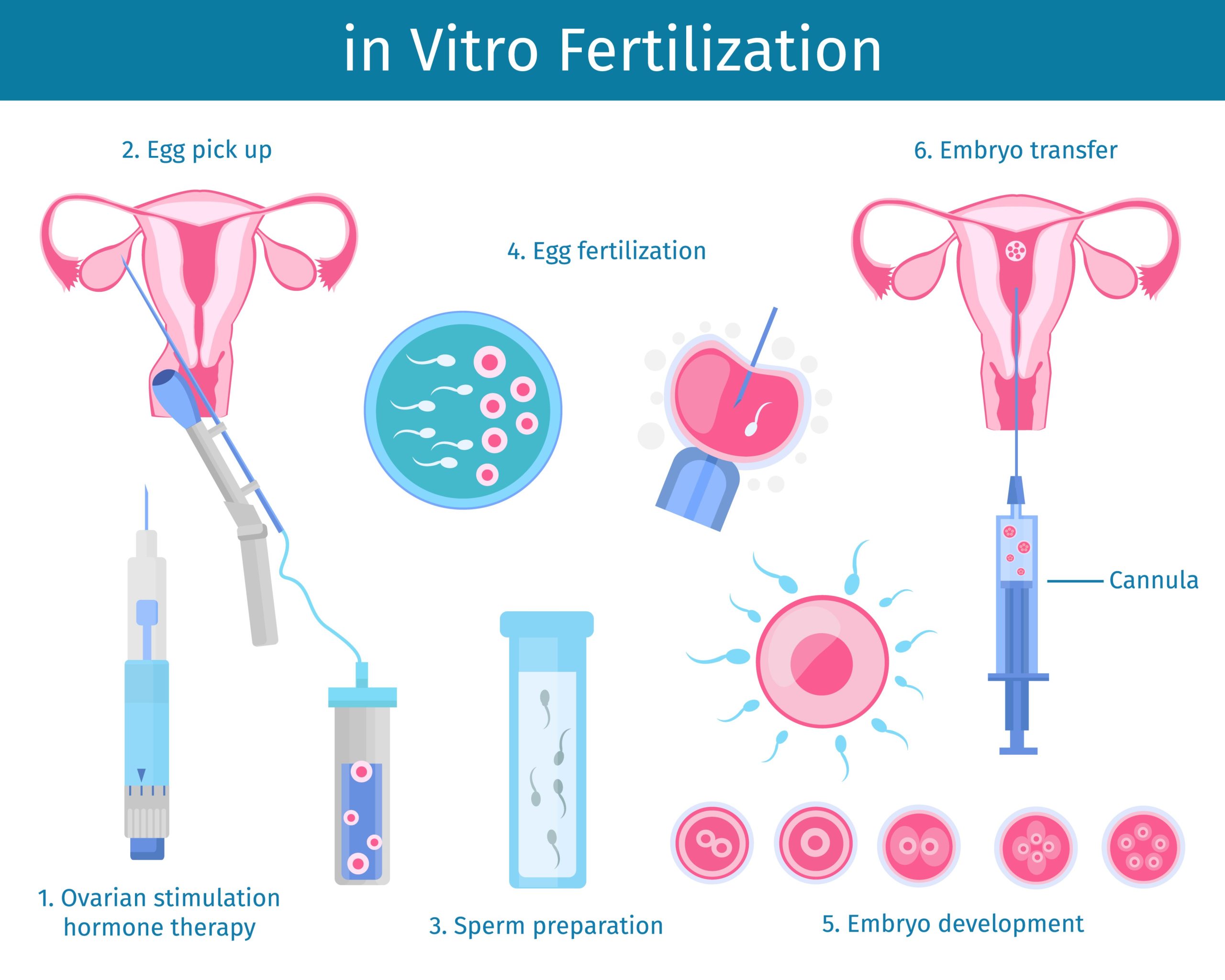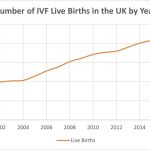How to Prepare for IVF: Your Ultimate Guide to Feeling Ready
Starting the journey to in vitro fertilization (IVF) can feel like stepping into a new world. It’s exciting, nerve-wracking, and full of questions. Whether you’re just beginning to explore fertility treatments or you’ve already scheduled your first appointment, preparation is key to making this process smoother and less overwhelming. This guide dives deep into everything you need to know to get ready—physically, emotionally, and practically—so you can approach IVF with confidence.
IVF isn’t just a medical procedure; it’s a life-changing experience that requires a little bit of planning and a whole lot of heart. From tweaking your diet to managing stress, understanding costs, and even preparing your home, we’ve got you covered with tips, science-backed advice, and real-world ideas that go beyond the basics. Let’s walk through this together and get you prepped for what’s ahead.
Why Preparation Matters for IVF Success
IVF is a big deal—it’s a blend of science, hope, and hard work. Getting ready isn’t just about following doctor’s orders; it’s about setting yourself up for the best possible outcome. Studies show that lifestyle changes, mental well-being, and even small daily habits can influence how your body responds to treatment. For example, a 2023 study from the American Society for Reproductive Medicine found that women who optimized their health before IVF had a 15% higher success rate compared to those who didn’t.
Preparation also helps you feel in control. When you’re facing injections, appointments, and waiting periods, having a solid plan can ease the chaos. Think of it like training for a marathon—you wouldn’t just show up on race day without stretching or fueling up, right? IVF is your marathon, and we’re here to help you warm up.
Getting Your Body Ready for IVF
Your body is the star of the show during IVF, so giving it some extra love beforehand makes sense. This isn’t about perfection—it’s about creating a healthy foundation for your eggs, hormones, and overall well-being.
Fuel Up with the Right Foods
What you eat can play a surprising role in fertility. Doctors often recommend a “Mediterranean-style” diet—think lots of veggies, lean proteins, healthy fats, and whole grains. A 2022 study in Fertility and Sterility showed that women who ate this way for six months before IVF had better egg quality and higher pregnancy rates.
Here’s what to focus on:
- ✔️ Load up on antioxidants: Berries, spinach, and nuts fight off stress in your cells, which can help your eggs stay strong.
- ✔️ Choose healthy fats: Avocados, olive oil, and salmon support hormone production.
- ✔️ Go for folate-rich foods: Leafy greens and beans prep your body for a potential pregnancy.
- ❌ Cut back on sugar and processed stuff: Too much junk food can mess with your blood sugar and hormones.
Try this: Swap your morning donut for a smoothie with spinach, berries, and a scoop of almond butter. It’s tasty, quick, and gives your body a nutrient boost.
Move Your Body (But Don’t Overdo It)
Exercise is a tricky one during IVF prep. You want to stay active, but pushing too hard can stress your system. A 2024 review in Human Reproduction found that moderate exercise—like walking or yoga—improved blood flow to the ovaries, while intense workouts (think marathon training) sometimes lowered success rates.
Aim for 30 minutes a day, five days a week, of something gentle:
- Walking with a podcast or your favorite playlist.
- Yoga poses like child’s pose or cat-cow to stretch and relax.
- Swimming for a low-impact full-body workout.
If you’re a gym buff, dial it back a bit. Your body needs energy for IVF, not just for lifting weights.
Sleep Like It’s Your Job
Sleep isn’t just a luxury—it’s a fertility superpower. A 2023 study from the National Sleep Foundation linked poor sleep (less than 7 hours a night) to hormonal imbalances that can affect egg quality. Aim for 7-9 hours of solid rest.
Try these sleep hacks:
- Set a bedtime alarm to wind down an hour early.
- Skip the late-night scrolling—blue light from screens messes with melatonin.
- Sip chamomile tea or try a lavender pillow spray to relax.
One woman I heard about started a “no-phone-after-9” rule before her IVF cycle and said it was a game-changer for her energy levels. Small tweaks, big wins.
Emotional Prep: Building Your Mental Strength
IVF isn’t just a physical journey—it’s an emotional rollercoaster. Hormones, hope, and uncertainty can hit hard, so getting your mind ready is just as important as prepping your body.
Find Your Support Squad
You don’t have to go through this alone. Whether it’s your partner, a friend, or an online community, having people to lean on can lighten the load. A 2024 survey by Resolve: The National Infertility Association found that 78% of IVF patients felt less stressed when they had a support network.
- Talk to your partner about how you’ll handle tough days—maybe it’s a movie night or just a quiet hug.
- Join a fertility support group (in-person or online) to connect with others who get it.
- Tell a close friend what you’re going through so they can check in.
One couple I read about made a pact to share one positive thing each day during their IVF cycle—it kept them grounded even when things got rough.
Stress Less, Thrive More
Stress doesn’t ruin IVF chances, but it can make the process feel harder. A 2023 study in Psychosomatic Medicine showed that women who practiced mindfulness had lower cortisol levels (the stress hormone) during treatment. You don’t need to be a meditation guru—just start small.
Try this 5-minute stress-buster:
- Sit somewhere comfy.
- Close your eyes and breathe in for 4 seconds, hold for 4, out for 4.
- Picture a calm place—like a beach or your favorite cozy spot.
- Repeat until you feel your shoulders drop.
Apps like Calm or Headspace can guide you if you’re new to this. Even five minutes a day can shift your mindset.
Quick Quiz: How Stressed Are You Right Now?
Take a second to check in with yourself:
- Do you feel tense or restless most days? (Yes/No)
- Are you sleeping okay, or tossing and turning? (Yes/No)
- Do you find it hard to focus on anything but IVF? (Yes/No)
If you answered “Yes” to two or more, try adding one stress-relief trick this week. You’ve got this!
Understanding the IVF Process: What to Expect
Knowing what’s coming can take the edge off. IVF isn’t one quick step—it’s a series of phases, and each one needs a little prep.
Step-by-Step Breakdown
Here’s the basic rundown:
- Ovarian Stimulation (Weeks 1-2): You’ll take meds to help your ovaries make more eggs. Expect daily injections and a few ultrasound check-ins.
- Egg Retrieval (Day 14-ish): A quick procedure under sedation to collect your eggs. You’ll need a ride home and a day to rest.
- Fertilization & Embryo Growth (Days 15-20): Eggs meet sperm in the lab, and embryos grow for 3-5 days.
- Embryo Transfer (Day 20-ish): One or two embryos go into your uterus. It’s fast and usually painless.
- The Two-Week Wait: You wait to test for pregnancy—nerve-wracking but exciting!
Prep Tips for Each Stage
- Before Stimulation: Ask your doctor about injection tips—some use ice to numb the spot.
- Pre-Retrieval: Stock up on comfy clothes and a heating pad for after.
- Post-Transfer: Plan a chill day—think Netflix and snacks, not errands.
A friend of mine kept a little IVF journal to track her shots and moods. It helped her feel organized and less scattered.
Money Matters: Planning Your IVF Budget
IVF isn’t cheap, and costs can catch you off guard if you’re not ready. In the U.S., one cycle averages $12,000-$15,000, not counting meds or extras like genetic testing. Let’s break it down and figure out how to make it work.
What You’re Paying For
| Item | Average Cost | What It Covers |
|---|---|---|
| Consultations | $200-$500 | Initial visits and planning |
| Medications | $3,000-$5,000 | Hormone shots and pills |
| Egg Retrieval | $5,000-$7,000 | The procedure and lab work |
| Embryo Transfer | $3,000-$5,000 | Placing embryos in your uterus |
| Freezing Embryos | $1,000-$2,000 | Storing extras for later (optional) |
Smart Money Moves
- Check Insurance: Some plans cover parts of IVF—call and ask about “diagnostic testing” or “fertility treatments.”
- Look for Grants: Groups like Baby Quest offer financial help for IVF.
- Save on Meds: Compare prices at pharmacies or ask about discounts—some clinics have programs.
One couple I heard about split their savings into “IVF buckets” (meds, procedures, etc.) to avoid surprises. It’s not glamorous, but it works.

Prepping Your Home for IVF
Your space can be a sanctuary during IVF—or a stressor if it’s chaotic. A few tweaks can make it a calm, cozy spot for this journey.
Set Up an IVF Station
Keep your supplies organized:
- A small box for needles, meds, and alcohol wipes.
- A calendar to track doses and appointments.
- A comfy chair or corner for injections.
One woman turned her guest room into an “IVF nook” with candles and a soft blanket—it became her safe haven.
Stock Your Recovery Zone
Post-retrieval and transfer days call for rest. Prep ahead:
- Pillows and a throw blanket on the couch.
- A stash of water, electrolytes, and easy snacks like crackers or fruit.
- A lineup of feel-good shows or books.
Think of it like nesting early—your future self will thank you.
Partner Prep: Teamwork Makes the Dream Work
If you’ve got a partner, they’re in this with you. Getting them ready can strengthen your bond and make IVF feel less solo.
Talk It Out
Sit down and chat about:
- Who’s handling what (shots, appointments, etc.).
- How you’ll support each other on tough days.
- Fun ways to stay connected—like a weekly date night.
A couple I know made a “no-IVF-talk” rule for Sunday mornings—just pancakes and laughter. It kept them sane.
Hands-On Help
Partners can:
- Learn to give injections (practice on an orange first!).
- Run errands or cook when you’re wiped out.
- Be your cheerleader during the two-week wait.

Three Fresh Angles You Haven’t Heard Before
Most IVF prep guides stick to diet and stress, but there’s more to explore. Here are three under-the-radar ideas to boost your journey.
Boost Your Gut Health
Your gut might not seem linked to fertility, but it is. A 2024 study in Nature Microbiology found that a balanced gut microbiome improves hormone regulation and reduces inflammation—both key for IVF. Probiotics (like yogurt or supplements) and fiber-rich foods (think oats or lentils) can help.
Try this: Add a spoonful of kefir to your breakfast for a month and see how you feel. It’s a small step with big potential.
Sync Your Cycle with Light
Light exposure affects your circadian rhythm, which ties into hormone production. A 2023 study from the University of California suggested that consistent morning light (20-30 minutes) can optimize melatonin and improve egg quality.
- Wake up and sit by a window with coffee.
- Use a light therapy lamp if it’s dark out.
- Dim lights at night to signal rest.
It’s like giving your body a natural fertility clock reset.
Try Acupressure at Home
Acupuncture gets a lot of buzz for IVF, but acupressure is a DIY twist that’s less talked about. A 2024 pilot study in Complementary Therapies in Medicine found that pressing specific points (like the spot between your thumb and index finger) reduced anxiety and boosted blood flow to the uterus.
How to:
- Find the spot (it might feel tender).
- Press gently for 1-2 minutes, breathing deeply.
- Do it daily, especially before bed.
It’s free, easy, and might just give you an edge.
Poll: What’s Your Biggest IVF Prep Worry?
Let’s get interactive! Pick one:
- A) Staying healthy and eating right.
- B) Handling the emotional ups and downs.
- C) Figuring out the money side.
- D) Understanding all the steps.
Drop your answer in your head (or share with a friend)—it’s a quick way to see what’s on your mind!
The Two-Week Wait: Prepping for the Long Haul
That post-transfer wait is brutal—14 days of wondering, hoping, and overthinking. Plan ahead to keep your cool.
Stay Busy (But Chill)
- Pick a light project: Organize photos or start a puzzle.
- Watch a series you’ve been saving—nothing too intense.
- Avoid Googling symptoms (trust me, it’s a rabbit hole).
Listen to Your Body
Rest if you’re tired, but don’t feel glued to the couch. Light walks are fine unless your doctor says otherwise. One woman I read about baked cookies during her wait—it kept her hands busy and her mind off the test.
Final Thoughts: You’re Ready for This
Prepping for IVF is about more than just checking boxes—it’s about building a strong, hopeful you. From eating smarter to leaning on your crew, every step you take brings you closer to your goal. You’re not just preparing for a procedure; you’re setting the stage for a new chapter.
Take it day by day. Celebrate the small wins—like nailing your first injection or sleeping through the night. You’ve got the tools, the plan, and the heart to make this work. Now, go rock that IVF journey—you’re stronger than you know.





